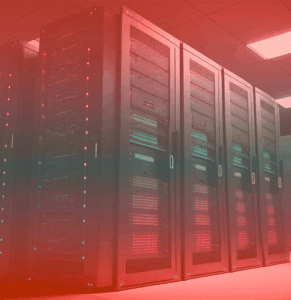
Data centers play a crucial role in housing vast workloads of legally restricted, essential, and sensitive data. Upgrades are pivotal for boosting a data center, its data center tier, and its IT capabilities, enhancing resilience, improving security, and minimizing downtime by replacing underperforming IT assets.
Despite the benefits, upgrades come with risks such as unexpected downtime, workload availability issues, and potential management or security gaps. Businesses should meticulously plan enhancements, ensuring they have all the necessary resources for a successful upgrade and mitigation strategies in case of failures.
Here are key factors that businesses must weigh before embarking on modern data center upgrades.
1. Define Business Requirements:
Avoid costly mistakes by aligning technology investments with clear ROI criteria. Upgrades are not about adopting new technologies but making existing systems more efficient. Identify critical resource expansion needs, such as increased storage, new workloads, updated apps, and support for additional users, employees, or transactions. Prioritize building robust IT capabilities like business continuity, workload resilience, and disaster recovery.
2. Identify Upgrade Targets:
Clearly define the scope of the upgrade, including hardware, software, cloud data as well as physical data, services, policies, processes, and workflows that may be affected. Identifying the scope early prevents oversights like hardware or software version incompatibility. Consider aging workloads or workload-dependent hardware that needs transformation, ensuring compatibility and preventing issues.
3. Develop a Roadmap:
A comprehensive upgrade project involves discrete tasks, such as adding server racks, which may also necessitate power and cooling capacity upgrades. Evaluate goals, and dependencies, and prioritize tasks accordingly to prevent delays. A well-defined roadmap ensures a smoother upgrade process.
4. Assess Upgrade Technologies:
Evaluate potential technology platforms for more extensive upgrades. Testing unfamiliar software and hardware before implementation is crucial. Use proof-of-principle projects and hands-on evaluations to ensure accuracy and understand setup, configuration, deployment, and interoperability.
5. Enhance Existing Infrastructure:
Consider tasks or projects that indirectly impact the upgrade but benefit overall infrastructure. Projects like adding redundancy to critical applications, updating power backups, and reassessing system management tools can boost performance, reliability, and efficiency.
6. Document Everything:
Organize detailed insights regarding data center hardware and software assortments, including licensing data, network addressing, and setup instructions. Having this information readily available prevents cancellations and delays due to a lack of essential details.
7. Backup and Restore:
Prepare for challenges by conducting backups and testing the restoration process for server applications or storage systems. Ensure that all teams involved in the upgrade can perform a successful rollback if needed. Document all changes made during the upgrade.
8. Inform Stakeholders:
Constantly update stakeholders about the upgrade operations, including planned upgrades, schedules, and any issues or delays. Provide accurate server information for support in case issues arise during or after the upgrade.
9. Deployment Validation:
Test and validate the deployment’s performance, address any issues, and initiate a rollback if required. Once validated, open resources for users, and flag changes in all data center systems and security management tools.
10. Adhere to Standards:
While there’s no specific requirement for data center design, adherence to data center standards is expected by partners, stakeholders, and customers. Consider adopting current standards such as ANSI/BICSI 002-2014, EN 50600, Uptime Institute, and TIA 942 to validate data center upgrades and ensure compliance with industry benchmarks.
In the complex landscape of modern data center upgrades, careful planning and strategic implementation are crucial to ensure a seamless transition and avoid costly disruptions. DS Total Solutions stands ready to support businesses through their data center transformation journey, offering comprehensive assistance, robust infrastructure solutions, and expert guidance. With a focus on aligning technology investments with clear ROI criteria and prioritizing business requirements, DS Total Solutions provides a roadmap for organizations to enhance their data center capabilities. By emphasizing thorough documentation, meticulous testing, and adherence to industry standards, DS Total Solutions ensures that data center upgrades are not only successful but also meet the highest benchmarks of performance, reliability, and security. With DS Total Solutions as your partner, you can navigate the intricacies of data center upgrades with confidence, knowing that your infrastructure is in capable hands.
